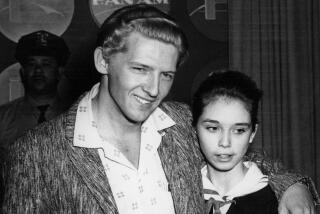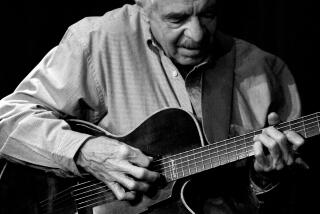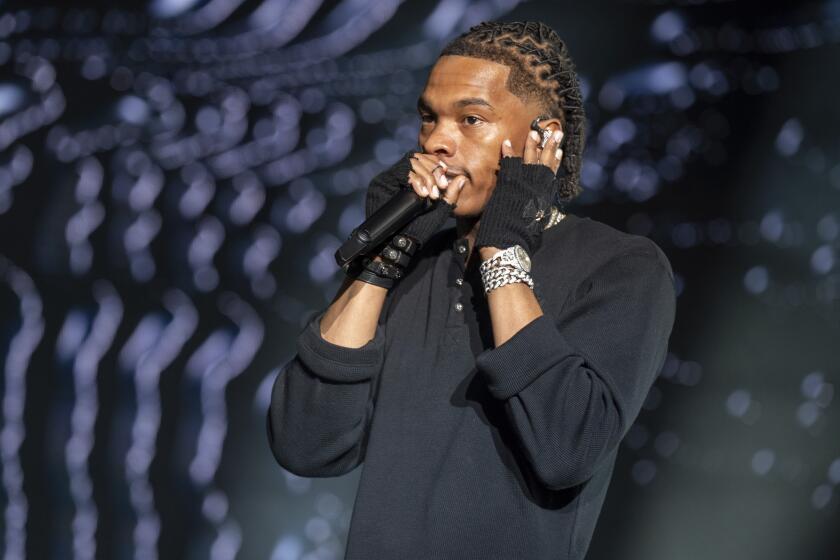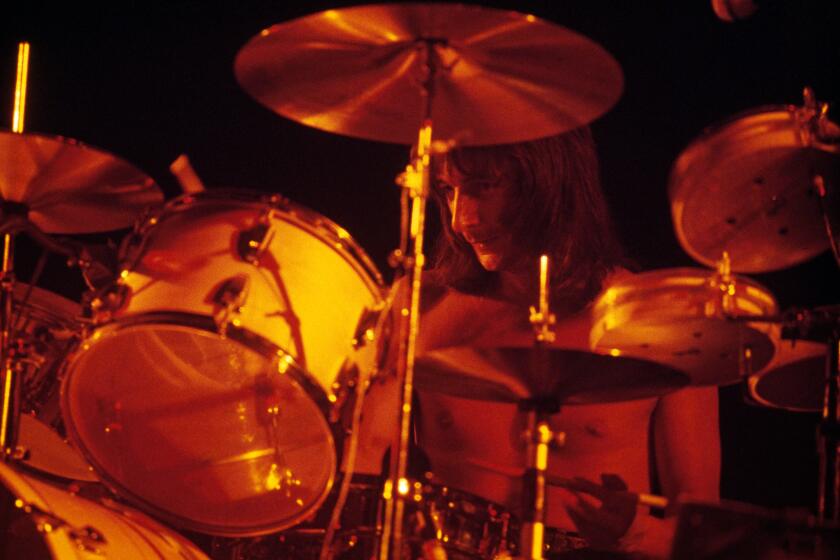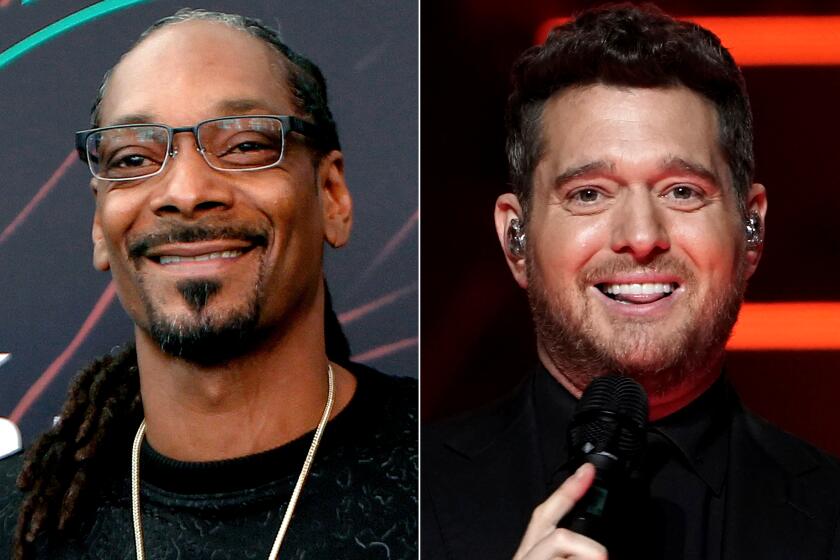POP MUSIC REVIEW : Blues Master Shows Why Many Imitate : Guitar: Otis Rush’s contributions have served to shape what the blues is today.
With each passing year, the blues becomes ever more a cliche. Some revel in the music’s deeply rooted traditions, celebrating every timeworn 12-bar shuffle, I-V-IV chord progression and bent note. But even the staunchest blues proponent would be hard-pressed to defend the genre as an innovative one in 1992.
The true masters and innovators of the blues--idiosyncratic geniuses such as Robert Johnson, Muddy Waters and Howlin’ Wolf--have, for the most part, left this world years ago. In their stead has risen a crop of mostly sincere but proudly generic performers, most of them virtually indistinguishable from one another in style and approach.
Of the few remaining folks who can legitimately claim to be progenitors of the blues, Chicago guitarist Otis Rush, who appeared Thursday night at the Belly Up Tavern in Solana Beach, stands tall.
Rush’s brand of slick, urban, uptown sound (as opposed to the more transplanted, front porch vibe of the above mentioned) has emerged as the prototype for almost anyone brandishing a guitar and a Stetson hat these days. Many of the artists on the roster of Chicago’s celebrated Alligator Records utilize Rush’s pioneering sides of the ‘50s and ‘60s as a model for their own music--either directly or indirectly.
So perhaps the smallish crowd at the Belly Up should be excused for offering little more than a polite response to the man whose contributions have, as much as anyone, served to shape and form what the blues is today. While Rush’s influence on the blues is undeniable, he no longer comes off as the true original he certainly is, due to saturation by scores of mostly inferior imitators who have followed in his footsteps.
Taking the stage dressed in a black sports coat, dark shades and a tan cowboy hat, Rush wasted no time in performing his two best-known, signature tunes--”All Your Love” and “Double Trouble” (the song for which the late Stevie Ray Vaughan named his band).
Wringing sustained, vibrato-trilled riffs from his red, Gibson ES-335 guitar, Rush, at 58, proved to still be in full command of his powers. A southpaw who plays a standard guitar upside down, it was a marvel to watch Rush attack his instrument in this seemingly incongruous manner, while delivering the numerous, vintage licks with which he’s associated. While his vocals were a bit less intense and impassioned than on his classically raw early recordings, Rush sang with conviction and hit wailing falsettos with ease and grace.
Much of the evening was spent on over-long, tiresome blues jams and covers (“Money,” “Crosscut Saw” and “I Can’t Quit You Baby” among them), but Rush’s pickup band of the evening, the L.A. All-Stars, did a remarkable job of backing him--especially considering that they had never rehearsed together prior to the performance.
Throughout the night, one could hear the echoes of guitarists such as Eric Clapton, Johnny Winter and Vaughan, who have appropriated Rush’s riffs into their own music. But, as if to prove that the chain is long at either end, Rush played verbatim guitar quotations from B.B. King during an interminable version of “Gambler’s Blues.”
Hunched and owlish as he stalked the stage, Rush contradicted his reputation for surliness with playful stage patter, a wealth of warm smiles and generosity in allowing members of the L.A. All-Stars to take solos.
Rush is not a performer who visits San Diego with any regularity (it’s been 12 years since his last appearance here), so the concert was a rare opportunity to appreciate the music of a true architect of the blues first-hand.
More to Read
The biggest entertainment stories
Get our big stories about Hollywood, film, television, music, arts, culture and more right in your inbox as soon as they publish.
You may occasionally receive promotional content from the Los Angeles Times.

